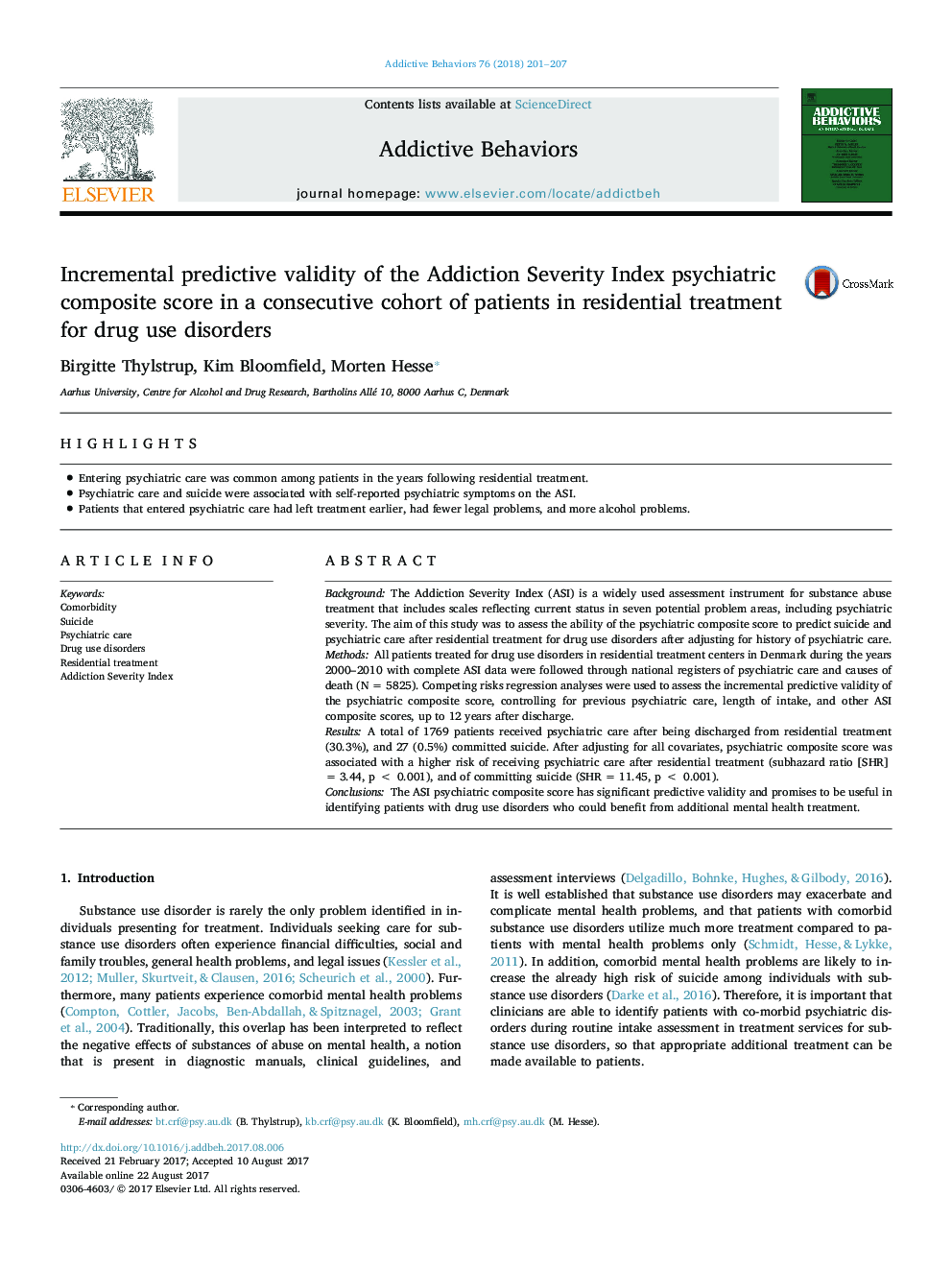| Article ID | Journal | Published Year | Pages | File Type |
|---|---|---|---|---|
| 5037626 | Addictive Behaviors | 2018 | 7 Pages |
â¢Entering psychiatric care was common among patients in the years following residential treatment.â¢Psychiatric care and suicide were associated with self-reported psychiatric symptoms on the ASI.â¢Patients that entered psychiatric care had left treatment earlier, had fewer legal problems, and more alcohol problems.
BackgroundThe Addiction Severity Index (ASI) is a widely used assessment instrument for substance abuse treatment that includes scales reflecting current status in seven potential problem areas, including psychiatric severity. The aim of this study was to assess the ability of the psychiatric composite score to predict suicide and psychiatric care after residential treatment for drug use disorders after adjusting for history of psychiatric care.MethodsAll patients treated for drug use disorders in residential treatment centers in Denmark during the years 2000-2010 with complete ASI data were followed through national registers of psychiatric care and causes of death (N = 5825). Competing risks regression analyses were used to assess the incremental predictive validity of the psychiatric composite score, controlling for previous psychiatric care, length of intake, and other ASI composite scores, up to 12 years after discharge.ResultsA total of 1769 patients received psychiatric care after being discharged from residential treatment (30.3%), and 27 (0.5%) committed suicide. After adjusting for all covariates, psychiatric composite score was associated with a higher risk of receiving psychiatric care after residential treatment (subhazard ratio [SHR] = 3.44, p < 0.001), and of committing suicide (SHR = 11.45, p < 0.001).ConclusionsThe ASI psychiatric composite score has significant predictive validity and promises to be useful in identifying patients with drug use disorders who could benefit from additional mental health treatment.
